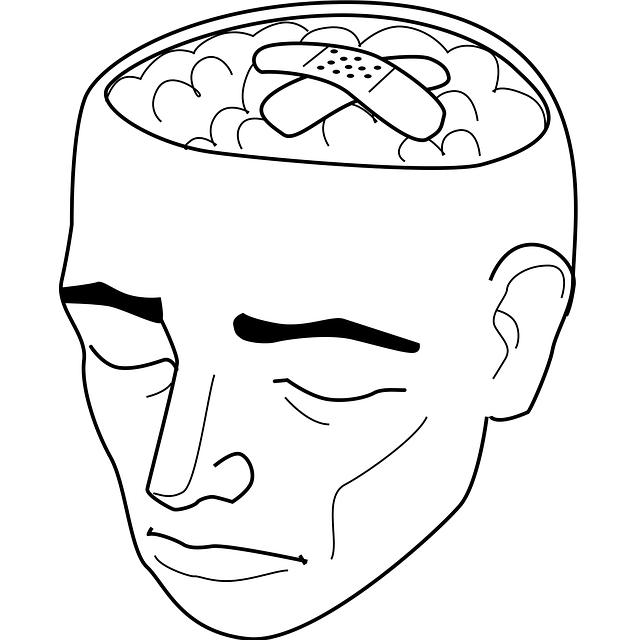Mental illness diagnosis involves qualified healthcare providers assessing symptoms, personal history, and standardized tests to identify conditions like depression, anxiety, or schizophrenia. Understanding this process is vital for mental wellness, impacting family dynamics and parenting skills significantly. Resources such as podcasts, crisis guidance, and burnout prevention strategies empower individuals to navigate therapy options, including CBT, mindfulness, EMDR, and trauma-focused approaches, tailored to their needs. Effective plans include empathy building and positive thinking techniques for enhanced resilience. Support services addressing parenting skills or trauma recovery aid healing. Therapy equips adults with tools to improve parenting skills and manage well-being, while community programs and support groups offer resources for better mental health risk management, promoting family anxiety relief and overall wellness.
Mental illness diagnosis and treatment navigation can be a complex, daunting journey. This comprehensive guide aims to demystify the process, offering insights into Understanding Mental Illness Diagnosis and Navigating Treatment Options for adults seeking therapy. Additionally, we explore the unique challenges of parenting with mental health issues, providing essential skills for building resilience within families. Discover practical steps and resources to empower individuals and parents alike in their mental health journeys.
- Understanding Mental Illness Diagnosis: Unraveling the Process
- Navigating Treatment Options: A Comprehensive Guide for Adults
- Parenting with Mental Health Challenges: Building Resilient Skills
Understanding Mental Illness Diagnosis: Unraveling the Process

Mental illness diagnosis involves a comprehensive process that requires professional evaluation and assessment. It often begins with recognizing symptoms and seeking help from qualified healthcare providers, such as psychiatrists or psychologists. These experts conduct thorough interviews, review personal histories, and employ standardized tools to evaluate mental health. Diagnosing conditions like depression, anxiety disorders, bipolar disorder, or schizophrenia demands a nuanced approach, as each has distinct characteristics and criteria. The process aims to differentiate between normal emotional fluctuations and clinically significant disorders, ensuring accurate identification for effective therapy for adults.
Understanding this diagnostic journey is essential for fostering mental wellness, especially when considering the impact on family dynamics. Parenting skills can significantly benefit from insights into managing mental illness, as it enables caregivers to provide supportive environments and navigate crises effectively. The Mental Wellness Podcast Series Production offers valuable resources, while Crisis Intervention Guidance and Burnout Prevention strategies further equip individuals and families in navigating these challenges, ultimately enhancing overall resilience and well-being.
Navigating Treatment Options: A Comprehensive Guide for Adults

Navigating treatment options for mental health can be overwhelming. As an adult seeking help, it’s essential to understand your available resources and make informed decisions about your care. A comprehensive guide should outline various therapeutic approaches tailored to individual needs, such as cognitive-behavioural therapy (CBT), mindfulness practices, or trauma-focused therapies like eye movement desensitization and reprocessing (EMDR).
Many effective treatment plans incorporate empathy building strategies and positive thinking techniques to foster resilience and well-being. Support services catering to specific challenges, like parenting skills training or trauma support, can also be invaluable. By providing accessible information on these options, individuals can actively participate in their healing journey and find the best path forward.
Parenting with Mental Health Challenges: Building Resilient Skills

Parenting is a rewarding yet demanding journey, especially when mental health challenges enter the picture. For adults navigating therapy and managing their well-being, fostering healthy parenting skills can be transformative. It empowers them to create resilient environments for their children while managing their own mental health effectively. Through therapy, parents can learn coping mechanisms to reduce stress and anxiety, ensuring a more stable home life.
Building resilience in families involves teaching practical skills. This includes techniques for emotional regulation, effective communication, and problem-solving strategies. By integrating these skills into daily routines, parents can create a supportive network for themselves and their children. Community outreach programs and support groups can also play a vital role, offering resources and connections for better risk management planning in mental health care. These initiatives aim to provide anxiety relief and promote overall family well-being.
Mental illness diagnosis and treatment can be complex, but navigating these challenges is essential for a healthier future. By understanding the process of mental health assessments and exploring comprehensive guides to adult therapy and parenting skills, individuals and families can empower themselves. These resources provide valuable insights into managing conditions, fostering resilience, and improving overall well-being. Embracing support systems and evidence-based practices, as outlined in this article, paves the way for a more hopeful and fulfilling life.














